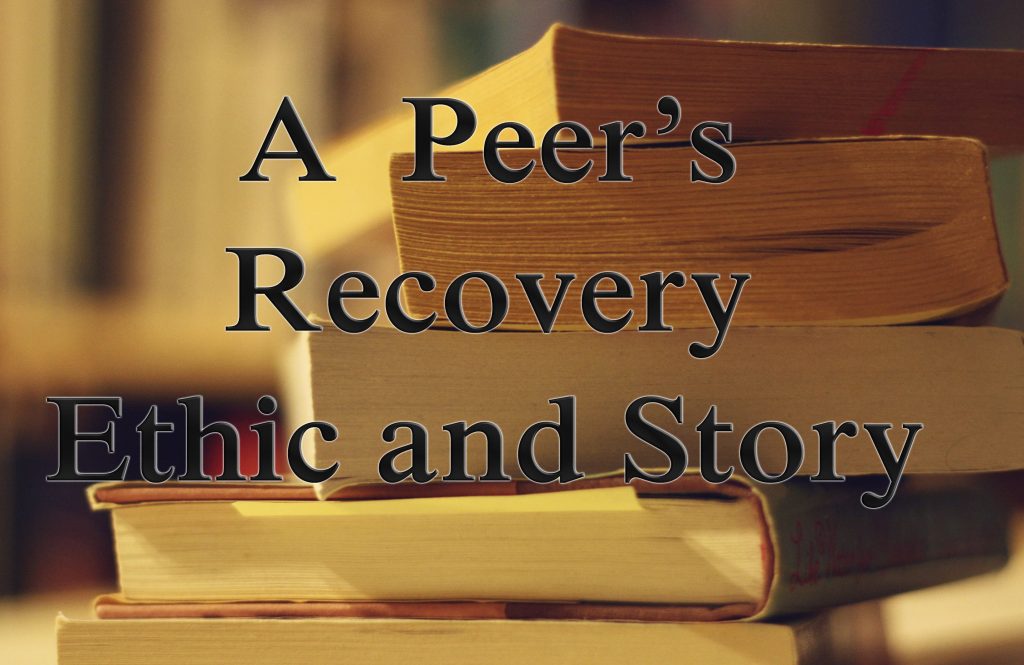The following story is written by Chris who is a Brooklyn, NY resident living with a mental health disorder. She shares her unique outlook on recovery as well as her hopeful message with us today. We are grateful that Chris is sharing her story on rtor.org. —Veronique Hoebeke, Associate Editor
Before I give the details of my recovery, I want to tell you my recovery ethic: I’m a mental health activist because I believe in my vision that recovery is possible.
I champion having “a full and robust life.” My psychiatrist told me my message IS valid: encouraging peers to participate in our treatment.
In my former job as the Health Guide at HealthCentral’s schizophrenia website and on my blog for numerous years now I’ve talked about collaborative treatment. I’ve quoted the old SYMS clothing store motto too often: “An educated consumer is our best customer.” Any provider who doesn’t welcome your questions, who doesn’t honor your individuality, who doesn’t listen to you and try to understand you, is not worth their salt. The treatment room should be a judgment-free zone.
Becoming an active participant in our treatment requires that we have the courage to use our voice to express our wishes, dreams, goals, hopes and yes, fears and doubts. And it requires that when we do this our treatment providers respect us and partner with us, instead of hiding behind the ex cathedra nature of their authority.
That is not to say we should willfully disregard prudent or helpful advice we’re given. We should be equally willing to listen to our providers, ask their rationale behind their thinking, and accept a suggestion that could help turn our lives around for the better.
I’ve written about shared medical decisions and becoming a proactive medical patient at HealthCentral years ago. In these modern times, providers should avoid instilling a sense of learned helplessness in their patients. There is a lot that patients can do.
I call the movement I wanted to create and wrote about two years ago at HealthCentral “The Positive Psychiatry Movement” because it advances recovery for everyone regardless of whether a person is in remission.
At this fall’s NAMI-New York State educational conference I met a woman who represented Resources to Recover. Lo and behold they’re doing what I wrote two years ago that I wanted to do: honor the best and brightest in the field.
I’m not an expert nor do I want to be viewed as one. I’m not a “celebrity” like Elyn Saks. I prefer the term “mental health activist” to describe my role in this movement. It wasn’t enough that I recovered. My victory would be a hollow one if I didn’t take action to try to help others recover. I’ve co-opted Martin Luther King’s question as the guiding principle of my life: “What are you doing for others?”
Now my story: I obtained a Masters in Library and Information Science from Pratt Institute. I’ve been employed as a public service librarian for over 15 years. I’ve been a board member of Baltic Street AEH Inc. for over 10 years for this peer-run agency that provides advocacy, employment and housing for people living with mental illnesses. I had a job for nine years as the Health Guide for Health Central. In 2016 I start a new second job as the Solutions columnist for SZ magazine, an online quarterly schizophrenia recovery magazine. My book Left of the Dial: a Memoir of Schizophrenia, Recovery, and Hope is available as a print and Kindle e-book copy.
This was all possible for only one reason: my mother drove me to the hospital within 24 hours of my breakdown; I was given medication that day; and when I was released three weeks later the symptoms were gone. I credit the love and support of my mother and my family and the support of my doctors and therapists with enabling me to recover.
Yet don’t be fooled. At this point in my life (I’m 50) I could give a rat’s ass about my stratospheric achievements. What matters to me is that everyone else living in recovery can achieve their own version of “a full and robust life.” I want everyone who experiences mental or emotional distress to get the right help right away so they have the opportunity to succeed.
—Chris from Brooklyn
www.christinabruni.com
<p style=”text-align: center;”><strong>Subscribe to our e-newsletter for more mental health and wellness articles like this one.</strong>
SUBSCRIBE NOW
</p>
Recommended for You
- The Intersection of LGBTQ+ Identity and Mental Health - December 9, 2024
- What Are the Signs of Self-Harm? A Comprehensive Guide - December 5, 2024
- People-Pleasing: Definition, Examples, and What You Can Do Instead - December 2, 2024







Thank you so much for sharing your moving and inspiring story Chris. We are enormously grateful at Rtor that you shared it. I truly loved the way you spoke about as your guiding principal of life integrating the question from Martin Luther King, “what are you doing for others?” What a beautiful message that you remind us all of.
Chris,
I love your ethic and story because they illustrate the idea of a partnership between a person in recovery and her providers. Thanks for sharing this on rtor.org!